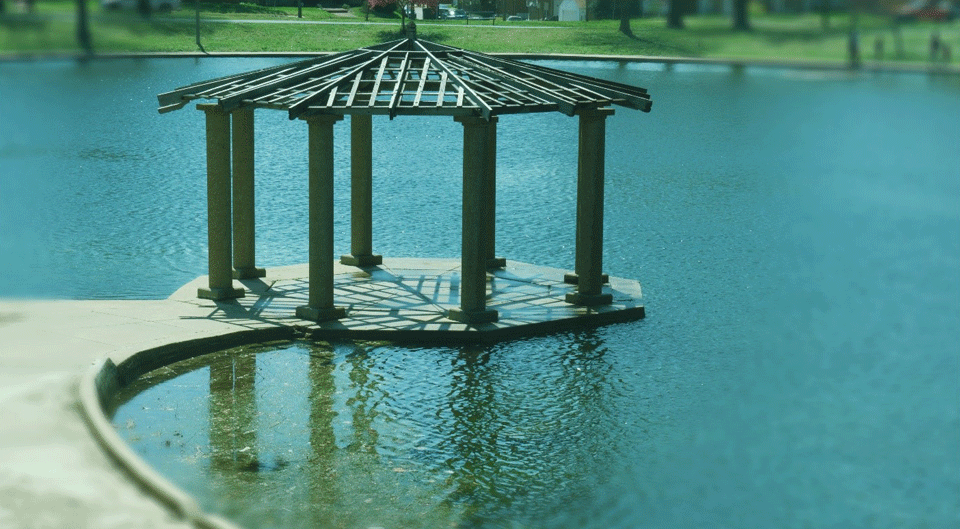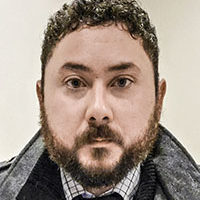
ST. LOUIS—Ordinary public parks nationwide have become a reprieve from the doom and gloom homilies emanating from the 24-news cycle situated in our living rooms, the emotional toll of self-isolation, and the overwhelming waves of uncertainty during crisis.
And with Spring at hand—warm weather occurring often, joined the well-pollinated, now blooming, vividly colored flowers, urban nature has regained our affection, appreciation, and a genuine sense of wonderment.
Even amid uncertainty, faced with the prospects of mortality and fearing our fragility, there is nothing quite like rediscovering a degree of joy through simplicity—merely stepping out the front door to bathe in sunlight.
In some select cities, dotted across the United States, you can find a good fishing spot in the most unlikely places. The thought of a recreational fisher or professional angler is usually visualized with boats, large clear blue lakes surrounded by a sprawling green landscape, and the sounds of birds, crickets, froggy “ribbits.”

But, even inside the thickest din of traffic, one can’t discount the historic popularity of urban fishing.
A mid-morning scene found a smattering of urban anglers, six feet apart from each other, casting expertly, whilst reeling in slow, steady, mimicking the subtle waves of a human-made pond.
Off to the side of an impressive public pavilion, reclined atop the concrete steps, an urban angler, whom we’ll call Joe, took a breather.
“Catch anything today?” I ask.
“No not yet,” he replied. “They’re not biting as much today, and we (he and other homeless or underemployed anglers) may just have to be patient and wait for the city to refill the ponds.”
Joe has been unemployed and on the streets for a few years. As he put, “the whole 9-5 life was never something I wanted…don’t care for the corporate culture.” An interesting take on the world of work we’re all groomed for as we grow from newborn to school age to work age, and a good reminder that at times homelessness, whilst still an issue needing to be solved, can also be seen as an escape from the capitalist way of life; the only way of life many of us have ever known.
“I don’t worry too much about what will happen tomorrow or the next day, as long as I can stay healthy, and able to pick up work here and there, I’m happy,” he continued. “I can sell what I catch, keep it for my dinner, or share with others who didn’t have a lucky day with their rod and reel.”

“This is probably a silly question, but aren’t you worried about the water your possible catch lives in?”
“Nope,” he said. “Given everything that’s going on right now with coronavirus, dirty water is the least of my concerns…plus, I’m just grateful for each new day I’m still above ground.”
We chatted for a few brief moments before he excused himself and went back to his fishing spot.
Throughout every urban fishing pond location, you will find a collection of hobbyists, folks supplementing their income or food source, families teaching the next generation of fishers, and those captivated by such observations.
This history of such a cityscape oddity is deeply rooted within our nation’s story of civil unrest during the height of the Civil Rights movement.

The urban fishing program was launched in six cities, including St. Louis, in 1969 by the U.S. Fish and Wildlife Service as the country faced violent riots, frustrations over police-community relations, racism, and economic disparity in Black communities.
The idea was simple: create a recreational activity that could potentially foster relationships between members of urban communities to combat violence, prejudice, and overall community frustrations.
Now, 50 years later, urban fishing has become quintessentially St. Louis and continues to bring together members of the community from all backgrounds. There is no real explanation why in the first three years of the program’s launch it outpaced all other test cities.

“We’re different,” said one angler I came across. “We have strong rural roots here.”
And it’s true, compared to all the other cities—Boston, Atlanta, Washington, Portland, Ore., and Fort Worth, Tx—St. Louis has strong ties to the Ozarks and the mid-South wilds.
Strange isn’t it?
An experiment to quell civil unrest and bring people together, now quells different civil unrest, bringing people together to socialize, at a physical distance, and allowing us to maintain a much-needed sense of community.
Like free stuff? So do we. Here at People’s World, we believe strongly in the mission of keeping the labor and democratic movements informed so they are prepared for the struggle. But we need your help. While our content is free for readers (something we are proud of) it takes money — a lot of it — to produce and cover the stories you see in our pages. Only you, our readers and supporters, can keep us going. Only you can make sure we keep the news that matters free of paywalls and advertisements. If you enjoy reading People’s World and the stories we bring you, support our work by becoming a $5 monthly sustainer today.












Comments